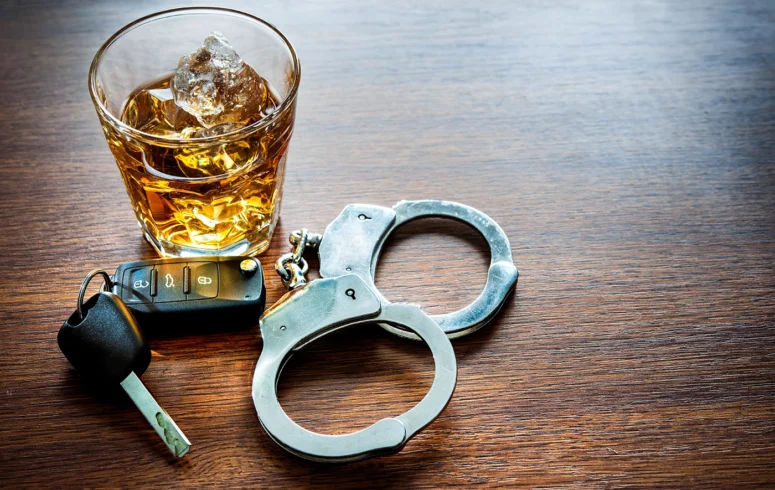Drunk Driving & Dram Shop Litigation
Holding Drunk Drivers and Negligent Establishments Accountable for the Devastating Consequences of Drunk Driving Accidents.
Contact Simon Law to schedule your free case evaluation.
Drunk Driving & Dram Shop Litigation Attorneys at Simon Law
Drunk driving accidents often result in severe injuries or fatalities, leaving victims and their families to deal with immense physical, emotional, and financial burdens. Victims have a legal right to seek compensation from the intoxicated driver as well as from any establishment that overserved alcohol to the visibly intoxicated individual who caused the accident.
At Simon Law, our experienced attorneys specialize in both drunk driving accident claims and dram shop litigation. We are dedicated to thoroughly investigating each case, identifying all liable parties, and pursuing maximum compensation for our clients. With a compassionate and client-focused approach, we strive to achieve justice and ensure that responsible parties are held accountable.

About Drunk Driving & Dram Shop Litigation
Drunk driving accidents are a tragic and all-too-common occurence, often leading to catastrophic injuries, fatalities, and profound emotional distress for victims and their families. When someone chooses to drive under the influence of alcohol, they not only endanger their own lives but also put the lives of others at serious risk. Beyond the impaired driver, establishments such as bars, restaurants, and liquor stores can also be held accountable if they serve alcohol to visibly intoxicated individuals who subsequently cause an accident. This legal avenue, known as dram shop litigation, allows victims to seek compensation from these establishments for their role in the incident.
Dram shop laws vary by state but generally hold that businesses have an obligation to serve alcohol responsibly and can be liable if their negligence contributes to a drunk driving accident. Proving liability in these cases often requires demonstrating that the establishment served alcohol to someone who was clearly intoxicated and that this action directly led to the accident and resulting injuries.
How Do I Know If I Have a Valid Dram Shop Claim?
To determine if you have a valid dram shop claim, consider the following key factors:
- Establishment’s responsibility: You must establish that the establishment (i.e. bar, restaurant, liquor store) served alcohol to an individual who was visibly intoxicated at the time of service.
- Visible intoxication: The person must have shown clear signs of intoxication that a reasonable person would have noticed. This can include slurred speech, unsteady walking, aggressive behavior, or other obvious signs.
- Causation: You need to demonstrate that the intoxicated individual’s consumption at the establishment directly contributed to the accident. This means proving that the overserving of alcohol was a significant factor in causing the incident.
- Accident and injuries: There must be a connection between the intoxicated person’s actions and the accident that caused your injuries. This involves showing that the drunk driver’s condition led to the accident in which you were harmed.
- Evidence: Gather evidence to support your claim, such as witness statements, surveillance footage from the establishment, receipts showing alcohol sales, and police reports. This evidence helps establish that the location’s negligence in serving alcohol was a direct cause of the accident.
- Legal consultation: Consult with an experienced attorney who specializes in dram shop litigation. They can evaluate the details of your case, help gather and analyze evidence, and advise you on the strength of your claim.
What Types of Damages Can I Recover in a Drunk Driving or Dram Shop Case?
In a drunk driving or dram shop case, you can seek various types of damages to compensate for the harm and losses you have suffered. These may include:
- Medical expenses: Compensation for all medical costs related to the accident, including emergency treatment, hopsital stays, surgeries, medications, physical therapy, and any future medical care required due to your injuries.
- Lost wages: Reimbursement for income lost due to time off work while you recover from your injuries. This also includes compensation for any future lost earnings if your injuries affect your ability to work long-term.
- Pain and suffering: Damages for the physical pain and emotional distress caused by the accident. This includes compensation for chronic pain, mental anguish, emotional trauma, and diminished quality of life.
- Emotional distress: Compensation for psychological impacts such as anxiety, depression, or post-traumatic stress disorder (PTSD) resulting from the accident.
- Loss of enjoyment of life: Damages for the reduction in your ability to enjoy daily activities, hobbies, and personal interests that were affected by the accident.
- Disability and disfigurement: Compensation for any permanent disabilities or disfigurement resulting from the accident, which can have long-term effects on your life and future earning potential.
- Property damage: Reimbursement for any damage to personal property, such as your vehicle or belongings, that occurred as a result of the accident.
- Punitive damages: In cases involving particularly egregious conduct, such as extreme negligence or recklessness, you may be awarded punitive damages. These are intended to punish the wrongdoer and deter similar behavior in the future.
- Loss of consortium: If the accident significantly impacts your relationship with your spouse or family, you may seek damages for loss of companionship and support.
Each case is unique, and the types of damages you can recover will depend on the specifics of your situation. Working with an experienced attorney can help you assess the full range of damages you may be entitled to and pursue the compensation you deserve.
What Evidence is Needed to Prove a Dram Shop Case?
To prove a dram shop case, you need to gather and present evidence that demonstrates the establishment’s liability in the incident. Key types of evidence include:
- Witness statements: Testimonies from individuals who observed the intoxicated person’s behavior at the establishment can provide crucial insights into whether the person was visibly intoxicated when served.
- Surveillance footage: Video recordings from the establishment’s security cameras can show the intoxicated person’s behavior and interactions with staff, as well as the service of alcohol.
- Receipts and transaction records: Receipts or records showing the sale of alcohol to the intoxicated person can help establish that the establishment served them during the time they were visibly intoxicated.
- Police reports: Official reports from law enforcement detailing the accident, including observations and statements about the intoxicated driver’s condition, can support your claim.
- Medical records: Documentation of your injuries and treatment can help establish the extent of harm caused by the accident, linking it to the intoxicated person’s actions.
- Testimony from experts: Expert witnesses, such as accident reconstructionists or medical professionals, can provide specialized knowledge about the effects of alcohol on behavior and the impact of the injuries sustained.
- Establishment policies and records: Internal policies, training materials, and employee records from the establishment can be used to show whether the staff were trained in responsible alcohol service and whether those practices were followed.
- Statements from employees: Testimonies from bartenders or servers who interacted with the intoxicated person can provide insights into their observations and actions regarding the person’s level of intoxication.
What Should I Do After a Drunk Driving Accident?
If you’ve been involved in a drunk driving accident, here’s how to handle the situation:
- Seek medical attention: Prioritize your health and safety by seeking immediate medical attention, even if you don’t feel seriously injured. Some injuries may not be apparent right away.
- Report the accident: Contact law enforcement to report the accident. A police report will document the details of the incident, including any signs of intoxication by the other driver, and will be an important piece of evidence for your case.
- Gather evidence: Collect as much evidence as possible from the scene of the accident. This includes taking photos of the damage to vehicles, the accident scene, and any visible injuries. Obtain contact information for witnesses who can provide statements about the incident.
- Document the incident: Write down your own account of what happened while the details are still fresh in your memory. Include information about the driver’s behavior, road conditions, and any interactions with the other driver.
- Get the driver’s information: Obtain the other driver’s contact information, insurance details, and driver’s license number. If the driver is arrested for driving under the influence (DUI), ensure this is noted in the police report.
- Notify your insurance company: Report the accident to your insurance company as soon as possible. Provide them with the necessary details to start the claims process.
- Avoid discussing fault: Do not admit fault or make statements about the accident that could be misinterpreted. Stick to the facts when speaking with law enforcement and insurance adjusters.
- Consult with an attorney: Contact an experienced personal injury attorney who specializes in drunk driving accidents. They can provide guidance on your legal rights, help you navigate the claims process, and pursue compensation for your injuries and damages.
- Follow medical advice: Adhere to your healthcare provider’s recommendations and attned all follow-up appointments. Keep detailed records of your treatment and recovery can support your case.
What if an Establishment Denies Serving the Intoxicated Person?
If an establishment denies serving the intoxicated person in a dram shop case, you can take several steps to strengthen your claim:
- Gather evidence: Collect any available evidence that contradicts the establishment’s denial. This can include:
- Surveillance footage: Obtain any video recordings from the establishment that show the intoxicated person being served alcohol.
- Receipts and transaction records: Look for records or receipts showing the purchase of alcohol by the intoxicated person.
- Witness statements: Collect statements from individuals who saw the person being served alcohol at the establishment.
- Obtain testimony from employees: Interview employees or staff members who were present at the time of the incident. Their testimony can help confim whether the intoxicated person was served alcohol.
- Review internal records: Request access to the establishment’s internal records, such as training manuals or policies on alcohol service, which may show whether proper protocols were followed or if there were any lapses.
- Consult with an expert: An expert in dram shop law can help analyze the evidence and provide testimony on industry standards for responsible alcohol service.
- Investigate further: Conduct a thorough investigation to uncover any additional evidence or documentation that might prove the establishment’s involvement. This may involve examining other incidents at the same establishment or similar patterns of behavior.
- Work with an attorney: Engage an experienced attorney who specializes in dram shop litigation. They can help you navigate the legal process, gather and present evidence effectively, and challenge the establishment’s denial through legal channels.
Are There Any Caps on Damages in Drunk Driving or Dram Shop Cases?
In drunk driving and dram shop cases, the availability and amount of damages you can recover may be influenced by various factors, including state laws and the specifics of your case. Here are key points to consider regarding caps on damages:
- State Laws: Some states have specific caps or limits on the amount of damages that can be awarded in certain types of personal injury cases. These caps can apply to various types of damages, such as non-economic damages (i.e. pain and suffering) and punitive damages.
- Punitive Damages: Many states have caps on punitive damages, which are intended to punish the wrongdoer and deter similar behavior. The cap can vary widely depending on the state and the nature of the case. Some states impose a fixed limit, while others may limit punitive damages to a multiple of the actual damages awarded.
- Non-Economic Damages: States may also impose caps on non-economic damages, which cover pain and suffering, emotional distress, and loss of enjoyment of life. These caps can vary based on state law and the specific circumstances of the case.
- Economic Damages: Generally, there are no caps on economic damages, which include compensation for medical expenses, lost wages, and other financial losses directly related to the injury. These damages are typically awarded based on the actual costs and losses incurred.
- Dram Shop Cases: Some states have specific dram shop laws that may influence the amount of damages recoverable from the establishment. While there might not be specific caps on damages in dram shop cases, state laws will dictate how liability is established and the types of damages that can be pursued.
- Legal Advice: It’s important to consult with an experienced personal injury attorney who is familiar with the laws in your state. They can provide guidance on any applicable caps on damages and help you navigate the legal process to maximize your compensation.
Meet Our Dedicated Team of Attorneys
When you need qualified and reliable guidance, you know where to turn. Simon Law is ready to listen to your story and review the complex aspects of your case.









Contact Our Firm Today
Our mission is to provide the highest-quality legal services with integrity, professionalism, and respect for our clients. Simon Law has the resources and expertise to handle your case without sacrificing the personalized counsel and support you deserve.